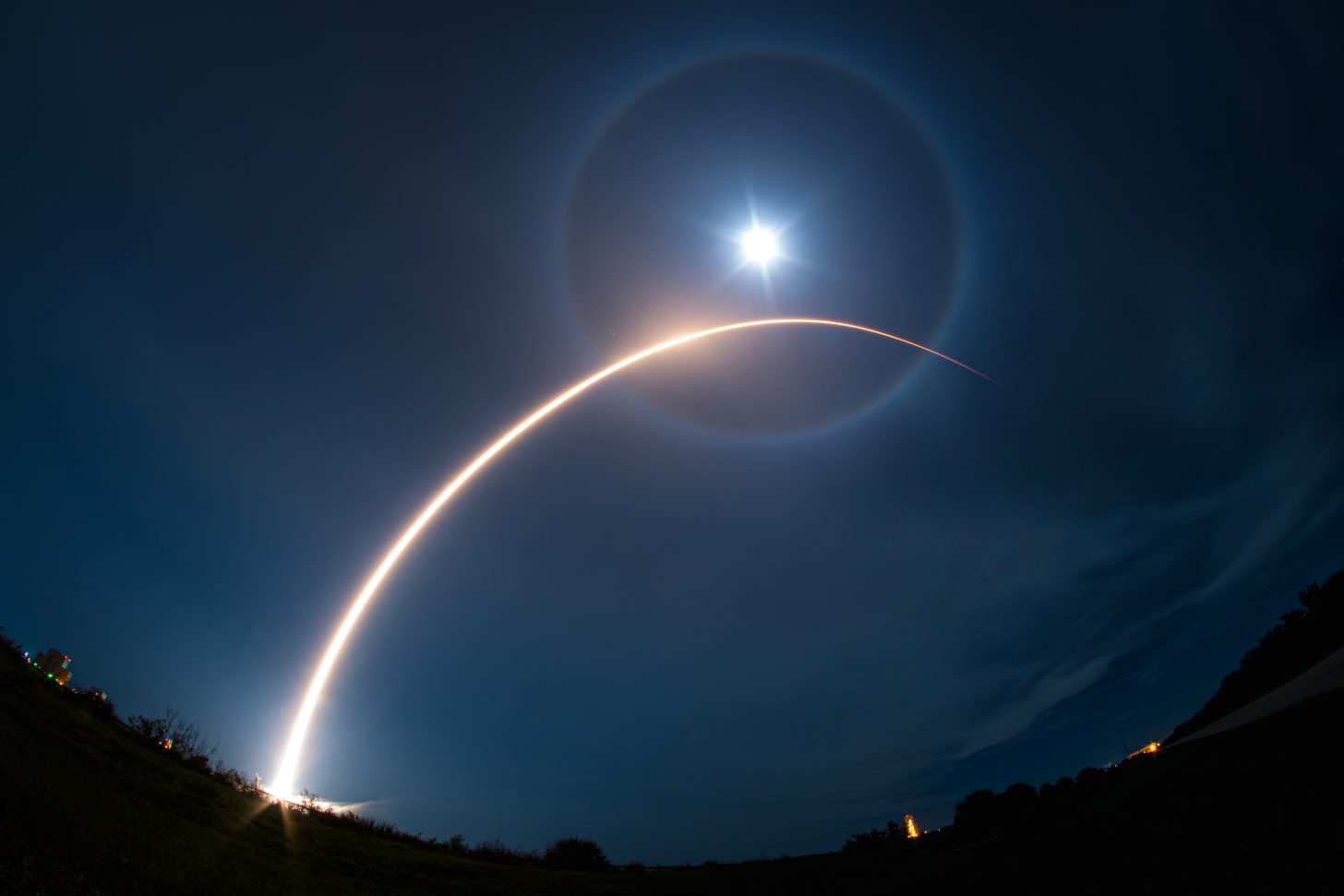
With 2023 about to come to an end, SpaceX's self-set goal of becoming the first company in the world to launch 100 rocket missions in a calendar year has become trickier. The firm's Falcon 9 rocket lifted off from the Cape Canaveral Space Force Station in Florida late night yesterday. It marked SpaceX's 89th operational and non-operational launch for 2023, leaving the firm with four weeks and two days to launch 11 more missions and complete a century. SpaceX's chief Elon Musk had shared the goal of launching its rockets 100 times in 2023 earlier this year, and the count also includes Starship launches.
SpaceX Launches And Lands Rocket 17 Times For Starlink Launch
The Falcon 9 that took off from Florida yesterday became the third rocket in SpaceX's fleet and the world to launch and land 17 successful times. SpaceX has gradually increased the number of times that it can reuse the Falcon 9 and, over the course of its life, also introduced a variety of key upgrades to the rocket.
SpaceX는 Starlink 발사를 위해 로켓을 17번 발사하고 착륙했습니다. 어제 플로리다에서 이륙한 Falcon 9는 SpaceX의 함대와 전 세계에서 17번의 성공적인 발사 및 착륙을 달성한 세 번째 로켓이 되었습니다. SpaceX는 Falcon 9를 재사용할 수 있는 횟수를 점차적으로 늘렸으며 수명 기간 동안 로켓에 다양한 주요 업그레이드를 도입했습니다.
While the Falcon 9 first stage is rapidly reusable, it was initially designed to launch NASA missions to the International Space Station (ISS). The ISS is located in low Earth orbit (LEO), and these parameters limit the Falcon 9's ability to launch payloads to what are dubbed in the industry and academia as 'high energy' orbits. These orbits are higher in altitude, requiring the Falcon 9 to travel farther than most missions to ensure that the second stage has enough juice to reach them.
Several of SpaceX's Falcon 9 upgrades have focused on expanding its use to these orbits. For instance, one change that SpaceX has made over the years is a new coating on the second stage to regulate its fuel temperature. Other upgrades have focused on the second stage's tanks and ignition fluids to increase the distance at which it can travel.
SpaceX의 Falcon 9 업그레이드 중 일부는 이러한 궤도로 사용을 확장하는 데 중점을 두었습니다. 예를 들어, SpaceX가 수년에 걸쳐 만든 변화 중 하나는 연료 온도를 조절하기 위한 두 번째 단계의 새로운 코팅입니다. 다른 업그레이드에서는 두 번째 단계의 탱크와 점화 유체에 초점을 맞춰 이동 거리를 늘렸습니다.
To date, the Falcon 9 has flown 83 times this year. Along with it, SpaceX has also stepped up the pace with the Falcon Heavy, as its largest operational rocket has flown four times this year, bringing up the successful launch tally to 87. At the same time, SpaceX has also launched Starship twice from its facilities in Boca Chica, Texas, increasing the 2023 launch count to 89.
This leaves 11 rocket launches remaining before 2023 ends, making it unlikely that SpaceX will meet Musk's goal of launching 100 rockets in a year. However, 87 successful launches are no small feat since it is still the highest number for any private company or a government organization. To understand the scale of SpaceX's operations, the firm ended up beating China when it came to operational rocket launches in Q3.
However, as 2024 beckons, the rocket industry is bracing itself for a new era. New rockets from the United Launch Alliance and Blue Origin are nearing their final stages, and ULA's Vulcan is slated to fly its first mission with new engines from Blue Origin in December. These rockets are larger and more powerful than the Falcon 9, with the Vulcan's Centaur upper stage designed to cover more high-energy orbits. SpaceX's Starship though is still the most powerful rocket, and once it becomes operational, the launch services industry will have to deal with a rocket that might not need stage separation at all for some missions.a
그러나 2024년이 다가오면서 로켓 산업은 새로운 시대를 준비하고 있습니다. United Launch Alliance와 Blue Origin의 새로운 로켓이 최종 단계에 가까워지고 있으며 ULA의 Vulcan은 12월에 Blue Origin의 새로운 엔진을 사용하여 첫 번째 임무를 수행할 예정입니다. 이 로켓은 Falcon 9보다 더 크고 강력하며 Vulcan의 Centaur 상단 스테이지는 더 많은 고에너지 궤도를 커버하도록 설계되었습니다. SpaceX의 Starship은 여전히 가장 강력한 로켓이며 일단 작동하게 되면 발사 서비스 업계는 일부 임무에 대해 단계 분리가 전혀 필요하지 않은 로켓을 처리해야 합니다.


 Optimisus
Optimisus DogeHome
DogeHome Crypto News Land
Crypto News Land Optimisus
Optimisus Crypto News Land
Crypto News Land Crypto News Land
Crypto News Land Optimisus
Optimisus Cryptopolitan_News
Cryptopolitan_News






















